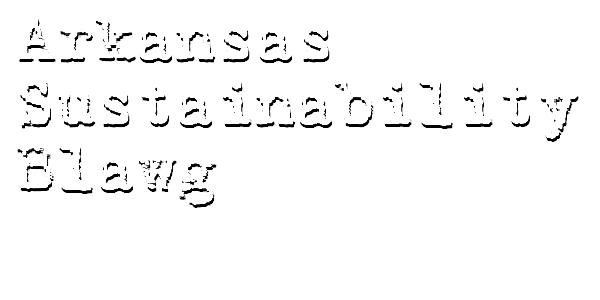Earlier this year, University of Arkansas Professor of Law Carl Circo wrote and published an article called, “Is There a Dark Side to Green?” The alarm raised by Professor Circo is that lawyers claiming expertise in sustainability law may be doing so for the wrong reasons. As Professor Circo writes,
Green building literature often uses such pejorative phrases as “greenwashing,” “green marketing,” and “the sustainability bandwagon” to suggest that not everyone who promotes sustainable construction does so with entirely pure motives. How common is it, and how objectionable, for professionals, including lawyers, to claim special expertise to garner more business as much as to advance sustainability? For that matter, even a law professor might elect to write on green buildings in part because it is relatively easy to get a good law review placement for a green building article.
My first impulse is to demur. So what? There are undoubtedly numerous businesses that have jumped on “the sustainability bandwagon” not out of an abiding sense of social responsibility, but to take advantage of an ever-growing market for sustainable products and services. For example, consider the owner of an auto dealership who does not believe that auto emissions contribute to global warming – indeed, who does not believe in global warming at all. But the dealership nonetheless markets and sells at a profit hybrid and energy efficient cars. Do the owner’s personal beliefs somehow change the character or benefits of the product sold? (Which is not to say that denizens of the sustainasphere would not find this proposition offensive or the owner morally corrupt.)
But the bigger logical failure of Professor Circo’s premise is that he equates sustainability law with more traditional legal practice areas like corporate law, contracts, securities, real estate, environmental law, municipal finance, and construction law. Sustainable law is not a traditional practice area. True, certain issues – green leasing and the law governing net metering come to find – resemble traditional practice areas. But few lawyers, if any, are going to be able to have a thriving law practice devoted solely to writing green leases or advising clients regarding compliance with net metering schemes.
Much has been written recently on the “new normal” for lawyers, law firms, and law practices. Much of this pontificating focuses on the shift from hourly rates to alternative and incentive based billing methods and on documenting the emergence in changes in how law firms operate – from a new emphasis on client service to identifying new ways to compensate and reward lawyers. Likewise, a lawyer will probably not have a philosophical attachment to a bond issue, while a true sustainability lawyer will bring specific public policy and value judgments to the representation.
In a recent article in the American Bar Association Journal, Paul Lippe wrote, “In the New Normal . . . lawyers recognize law as a system of information and management, where the challenge is to impact the outcome for lots of distributed actors in a complex system where law is only one part.” That’s pretty dense, but what it means is that if Lippe and his ilk are right, the future practice of law will be much more about relationships driven and defined by client values and goals and much less about having a body of specialized knowledge and charging an hourly rate that reflects that amount of gray in a lawyer’s hair and that is the highest the market will bear for access to that knowledge.
Because “sustainability” is both a process and a value-shaped result, the practice of sustainability law reflects this new normal. It is far more than recognizing that the commercial lease of a LEED-certified building will need to contain numerous specialized provisions, or that certain tax credits or financing incentives may be available for “green” projects that are not available for “traditional” projects. It is about practicing law in a way that lines up with the client’s values, and that means law offices that adhere to a “triple bottom line” philosophy and that follow other sustainable practices. The simple fact is that if a lawyer wants to hold themselves out as practicing sustainability law, they are not only going to need the specialized knowledge to preach the practice, but also the dedication to practice the practice.
I want to make it clear that I do not know Professor Circo, and that I appreciate him giving voice to this issue under the masthead of a respected university publication. And, criticism aside, the question he raises is a good one: how does one find and hire a true sustainability lawyer – that is, one who has not simply “jumped on the bandwagon” to garner business but who is invested in the process and the result? Stay tuned for Part II….
(Department of Citation: “A Professional Renewal: Why Great Lawyers of the New Age May Be ‘System Designers’”, by Paul Lippe, June 8, 2011, can be read here:
http://www.abajournal.com/legalrebels/article/professional_renewal_in_the_new_normal/)
(Department of I’m Not Picking on You: I have absolutely nothing against bond lawyers! Several of my law partners practice municipal finance, and my father-in-law is a former bond lawyer.)

No comments:
Post a Comment
I welcome your comments. By commenting on this blog, you accept the blog's terms of use. You must use your first and last name when posting, and you must stay on topic.